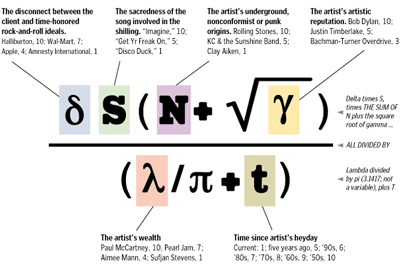Best Links of 2007 (Volume 2)
[Editor's Note: This is volume 2 in my year end link wrap up. Volume 1 was published on December 22nd.]
Alrighty, let's jump right in . . .
- Good Magazine published a fascinating piece on Bruce Bueno de Mesquita, an NYU professor who uses game theory to predict future events. His methods for prediction are best described this way, "In the foreboding world view of rational choice, everyone is a raging dirtbag."
- Turns out Wine Critics are not nearly as objective as you would be lead to believe: "What these experiments neatly demonstrate is that the taste of a wine, like the taste of everything, is not merely the sum of our inputs, and cannot be solved in a bottom-up fashion. It cannot be deduced by beginning with our simplest sensations and extrapolating upwards. When we taste a wine, we aren't simply tasting the wine."
- All year, Seamus McCauley's Virtual Economics was one of my favorite blogs. Of everything he wrote, though, I most enjoyed his entry on the value of satirical news. To quote him: "To overcome rational ignorance we need more Onions, more Daily Shows, more Sunday Sports - diverse cultural forms that treat the news as entertainment, reach every section of society and reward individuals for taking the trouble to keep themselves informed."
- Below you'll see the Moby Quotient, which is an equation that "determines the degree to which artists besmirch their reputations when they lend their music to hawk products or companies." A brilliant piece of link bait from the Washington Post.

- Since we're onto visuals, here's one of the most oddly beautiful things I saw this year (via Kottke):
- Everyone always uses Apple as an example of a good brand, but few explain how they got there. Basement.org does a great job with 10 things we can learn from Apple.
- I would be amiss if I left Terry Heaton, one of my favorite bloggers, off the list. His essay on Postmodernism's Greatest Gift, is a fantastic explanation of postmodernism. To put it simply, "Postmodernism's great gift to humankind is this challenging of assumptions, and this is an important matter for our new century. Why? Because in every walk of life, our failed institutions are rooted in assumptions that need challenging, if we are to progress as a culture."
- The Wall Street Journal had a great peice Daniel Henninger that uses packet switching as a metaphor for our current culture: "Packet-switching could hardly be more different [than the a to b connections of switchboards]. Information departs point A but then breaks into pieces, or packets, and bounces around a shared network almost randomly, then somehow arrives together at point B. The packet is a bundle of electrons, but "packet" is an apt metaphor for how the technology has changed us. Rather than sit still to fully absorb a copper-wire's stiff stream of information, we flip through screens, sorting fragments of data into a final thought or solution."
- Finally, I'll leave you with a few of my favorite blog sources from the year past: Fimoculous, Virtual Economics, Bubblegeneration, swissmiss and this blog sits at the.
Think that's it for now. Happy new year. Hope everyone is safe and happy. Here's to a great 2008.
December 31, 2007